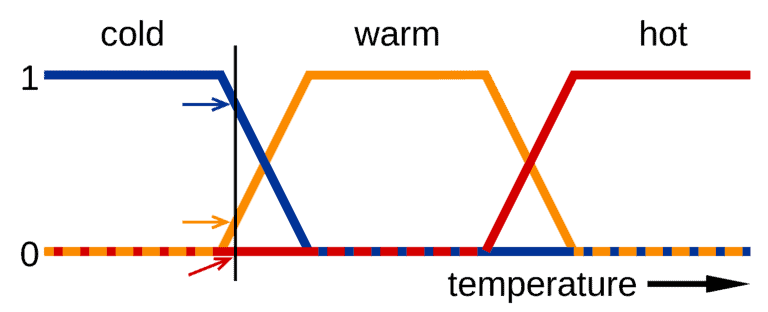A reverse phone lookup helps you find out who owns a phone number. If you get a call from an unknown number, you can use this tool to learn more about the caller. To use it, just enter the phone number in a search bar on a website or app that provides reverse phone lookup services. This tool is useful for identifying missed calls or avoiding scams, as it may give you the caller’s name, address, or social media profiles.
The process is easy and does not require any technical skills; you only need the phone number you want to check. By entering the number, the system looks through many databases to find a match. Some services are free, while others may charge a fee for detailed information or for harder-to-trace numbers.
🔎 1. Data Sources Behind Reverse Lookups
Reverse phone lookup tools gather data from multiple sources, such as:
- Public Records – voter registration, property records, business licenses.
- Telecom Databases – carrier information and line type (mobile, landline, VoIP).
- Social Media & Online Profiles – if a number is tied to an account.
- Marketing & Data Brokers – companies that buy and sell consumer data.
- OSINT (Open-Source Intelligence) – search engines, forums, or websites where the number appears.
(Source: SEON, OSINT Industries)
⚙️ 2. How the Process Works Step by Step
- You enter a phone number into a reverse lookup service.
- The system scans databases for matches tied to that number.
- Results are compiled, which may include:
- Name of the owner
- Location (city/state)
- Carrier type (AT&T, Verizon, VoIP, etc.)
- Social media profiles
- Spam/fraud reports from other users
📌 3. What You Can (and Can’t) Find
✅ Commonly available:
- Caller’s name (if public)
- General location (not exact address unless public)
- Whether it’s a landline, mobile, or VoIP
- Spam/scam risk reports
❌ Harder to access (often restricted by privacy laws):
- Exact home address
- Sensitive personal data (SSN, financial info, etc.)
⚖️ 4. Legal & Ethical Considerations
- Legal Use: Identifying unknown callers, avoiding scams, or reconnecting with contacts.
- Illegal Use: Stalking, harassment, or attempting to steal personal data.
- Many countries (like the U.S. and EU) regulate how much data can be shared without consent.
(Source: WSBTV)
🛠️ 5. Free vs. Paid Services
- Free methods: Google search, social media, WhatsApp profile info, people search engines.
- Paid services: Offer deeper data (addresses, relatives, background info) by tapping into larger commercial databases.
(Source: Management.org)
✅ In short: A reverse phone lookup works by cross-referencing a phone number with publicly available and commercial databases to reveal who might be behind it.
Understanding Reverse Phone Lookups
A reverse phone lookup is the process of entering a phone number into a search tool to find out who owns it or to gather related information. Instead of starting with a name and finding a number, you start with the number and trace it back to a person, business, or location.
A reverse phone lookup service helps you find out who owns a particular phone number. You might want to use these services to identify unknown callers, verify a person’s identity, or track down a scam caller.
How these services work
Reverse phone lookup services work by searching a variety of sources, including:
- Public records: Information such as phone directories, property records, and court records can sometimes be used to link a phone number to its owner.
- Telecommunications providers: Phone companies themselves hold extensive information about their customers.
- Online data aggregators: These companies collect and sell data gathered from social media profiles, public records, and other online sources.
Popular reverse phone lookup services
| Service |
|---|
| Whitepages: Offers both free and paid reverse phone lookup services, providing basic information like name, address, and carrier. |
| BeenVerified: A paid service with more comprehensive results, potentially including social media profiles, background checks, and more. |
| Spokeo: Provides various information, potentially including associated addresses, family members, and even criminal records. |
| TruthFinder: Offers detailed reports that may contain personal information such as email addresses, employment history, and social media profiles. |
Important considerations
- Accuracy: Information found through reverse phone lookups may not always be accurate or up-to-date.
- Privacy: Use reputable services that respect user privacy and have clear data handling policies.
- Cost: While some basic information may be available for free, more detailed reports usually come with a price tag.
Key Takeaways
- Reverse phone lookup helps identify unknown callers by inputting their numbers into a lookup service.
- The tool is easy to use, needing only a phone number and no technical skills.
- This service can provide various levels of information, sometimes for a fee.
Understanding Reverse Phone Lookups
Reverse phone lookups are a powerful tool for identifying the source of a phone call. They invert the typical process of using a name to find a number, instead using a number to unearth various details about the caller.
Concept and Functionality
A reverse phone lookup takes a phone number you provide and searches through a database to find matching information about the number’s owner. The lookup can reveal essential details such as the owner’s name, address, and whether it is a landline or cell phone. Businesses and individuals often use this service to find out who called them when only a phone number is available on their caller ID. This service can give them peace of mind about the identity of unknown callers.
Here’s a simple breakdown of how this process works:
- You enter a phone number into a reverse phone lookup service.
- The service scans various databases for a match.
- It then displays the information it finds, such as the owner’s name or location.
This tool can be helpful in avoiding telemarketers or identifying important calls that you might have missed. One important thing to note is that the accuracy of the information depends on the database’s completeness and how often it is updated.
Types of Numbers Researched
Reverse phone lookups handle different types of numbers:
- Landline Numbers: Generally easier to trace as they are often listed in public directories.
- Cell Phone Numbers: Might not be as straightforward to trace because they are not always publicly listed due to privacy laws.
- Unlisted Numbers: These are numbers that people have chosen to keep out of phone books and online directories.
- VOIP: Includes numbers for internet-based phone services, which can be more challenging to track.
- Business Numbers: These are often included in reverse lookup databases and can be simpler to identify.
Landline and business numbers typically yield more accurate results because they are more likely to be registered in public databases. Cell and VOIP numbers might require more specialized databases for accurate identification.
Leveraging Reverse Phone Lookups
Reverse phone lookups provide valuable insights by linking a phone number to a person’s identity. They help to confirm the caller’s information and uncover potential risks associated with unknown numbers.
Preventing Fraud and Scams
A reverse phone lookup helps shield you from fraudsters. When an unknown call comes in, you can find out who is behind the number. Tools like search bars on trustworthy websites allow you to enter a phone number and instantly see the name and city of the individual. If the number links to public records or even criminal records, the service might show this data. This works as a shield against phone scams by verifying if a call is legitimate or a possible scammer.
Enhancing Personal and Business Connections
Using a reverse phone lookup can improve your personal and business relations. For businesses, knowing who is calling can turn a mystery number into a potential client with just a search. You might find a full name, address or even social media profiles which makes it easier to build a contact list. For personal connections, accessing this contact information helps to maintain trust. If you get a call from an unknown number, a quick lookup can verify if it’s someone you know.
Online Tools and Resources
Several online services offer reverse phone lookup capabilities. You simply type the phone number into a search bar on sites like WhitePages.com or BeenVerified. Results might provide a name, address, and even email address. Some sites might connect phone numbers to social media accounts. It’s important to choose services that respect privacy and comply with the Fair Credit Reporting Act. Google and Bing are options but might not always provide detailed information like dedicated phone directories.
Frequently Asked Questions
This section provides answers to common questions about reverse phone lookups, guiding users through the process and considerations related to these services.
What methods are used in performing a reverse phone lookup?
Reverse phone lookups match phone numbers to owner details. They split the number to show location by area code and the line type, whether mobile or landline. Most services search databases to connect numbers to names or addresses.
Can a reverse phone lookup be conducted without a charge?
Yes, one can use free online tools or search engines to look up a phone number. Search results might include the person’s name, address, or associated businesses. Paid services offer more detailed information.
Are there reliable platforms for a one-time reverse phone lookup?
Several platforms offer one-time lookups. These are ideal for individuals who need occasional searches without subscribing to a service. Users should read reviews to choose a trustworthy provider.
How can one verify the accuracy of information obtained from a reverse phone lookup?
Users can cross-reference the data with other online sources. Contacting the number or checking social media profiles might help confirm the details. Always use reputable lookup services to improve accuracy.
What are the privacy considerations when using reverse phone lookup services?
Users should respect privacy laws. Reverse phone lookup services must obey regulations regarding data protection and users should not misuse the information for illegal activities.
How do reverse phone lookup services source their data?
The data comes from public records, online profiles, and directories. The services gather and organize information from various resources to provide comprehensive lookup results.







